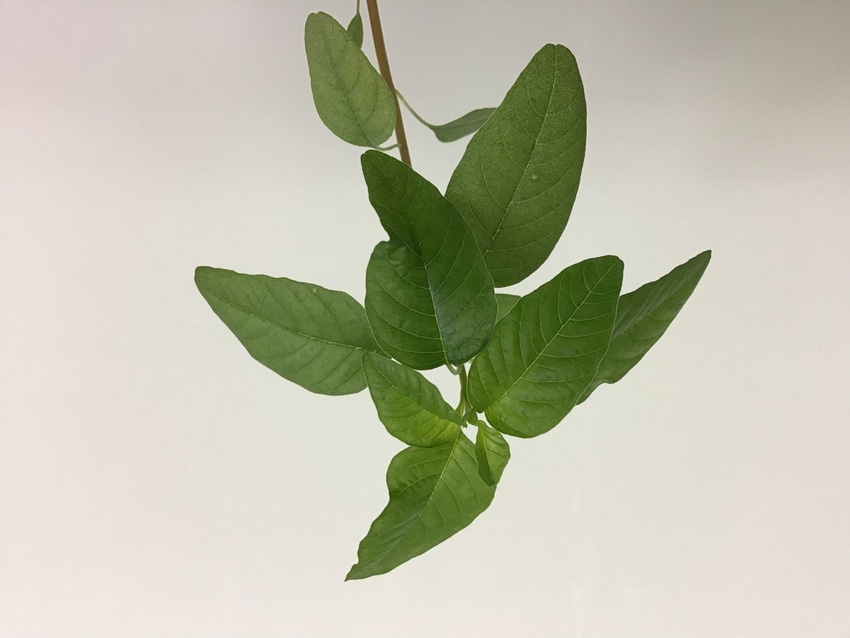
North Carolina State University Extension Weed Specialist Wes Everman continues to urge North Carolina farmers to be on the lookout for resistant waterhemp, redroot pigweed and Palmer amaranth across the state.
Speaking at the Blacklands Farm Managers Tour Aug. 4 at Turnpike Farms in Pantego, N.C., Everman said Palmer amaranth is now showing resistance in spots across North Carolina to glyphosate, ALS, HPPD and PPO technologies. He noted that testing is also underway to see if Palmer amarnath is resistant to atrazine. He also said resistant redroot pigweed is popping up in spots across the state.
Once again, Everman urged farmers to use multiple modes of action as the key to resistance management. He stressed the importance of pre-emergent herbicides, postemergent herbicides and residuals.
“I see folks going out with jut 2,4-D, just dicamba, or just Liberty with no residual in the tank, no other product in the tank. That’s a recipe for disaster,” Everman told the crowd at the Blacklands tour.
Everman noted that when one product quits working, farmers shift to another and then switch again and switch again. “We don’t get away from resistance by doing that. We want to use these residuals, our Group 15s, Dual, Warrant, Zidua, and our Group 14s, Valor, Spartan and Reflex.”
The use of both pre-emergence and postemergence herbicides is a must. He said such products as Flexstar, Cobra and Blazer can generally be used across the farm. He also said metribuzin is generally a safe option as well. He stressed the importance of rotating Liberty, Enlist and Xtend traits.
“If we can rotate them in a season, even better. We can’t just pick one technology and wear it out and then hope to go to the next. I don’t think that’s going to work, and we’re only talking about three products. How long do we have if we don’t start switching now?” Everman said.
Everman pointed out the new weeds are coming into the state primarily through equipment that is purchased from Midwestern states and then brought into North Carolina. He also said waterfowl can move weed seed from one part of the state to another. He said it has been confirmed that water hemp was introduced into North Carolina from a combine purchased in the Midwest and brought to North Carolina.
He urged farmers to be on the lookout for water hemp on their farms. It is different than Palmer and redroot pigweed in that it has thin leaves and shorter petioles. He said it is hairless, like Palmer.
“If you have a weed that looks like it might be Palmer, but looks a little funny, get in touch with your county agent or Charlie (Cahoon, also a North Carolina State Extension weed specialist) or me. We want to make sure. We don’t want to see water hemp pop up in too many places,” Everman said.
In addition to keeping an eye out for water hemp, redroot pigweed and Palmer amaranth, Everman urged Blackland farmers to be on the lookout for common ragweed. He said just north of the Blacklands, in northeastern North Carolina, common ragweed has shown three-way resistance to glyphosate, ALS and PPO inhibitors.
“It (common ragweed) could move on equipment down here. Water hemp came to North Carolina from the Midwest. Pretty much everything we have identified in North Carolina has moved on equipment. They brought it here and they brought along seed issues,” he said.
“The No. 1 piece you can move weed seeds with is a combine. If you have a weedy patch, if you’re bringing a combine from another farm, if you’re getting help from somebody, if you have time and you have the opportunity, clean that thing from front to back. Try to get as much seed out of it as you can. This is an inherited problem, something that came along with the equipment,” Everman said.
About the Author(s)
You May Also Like






